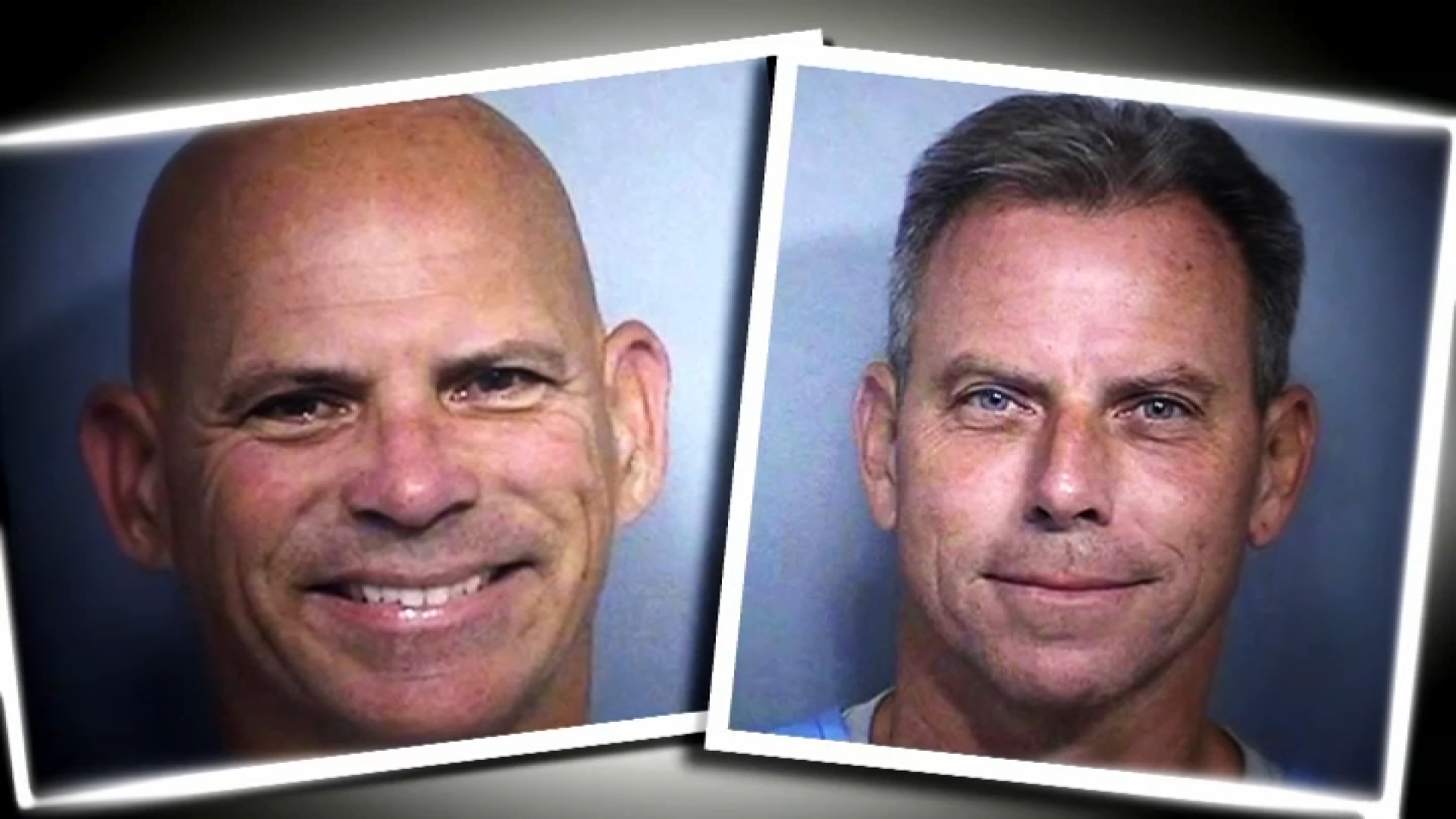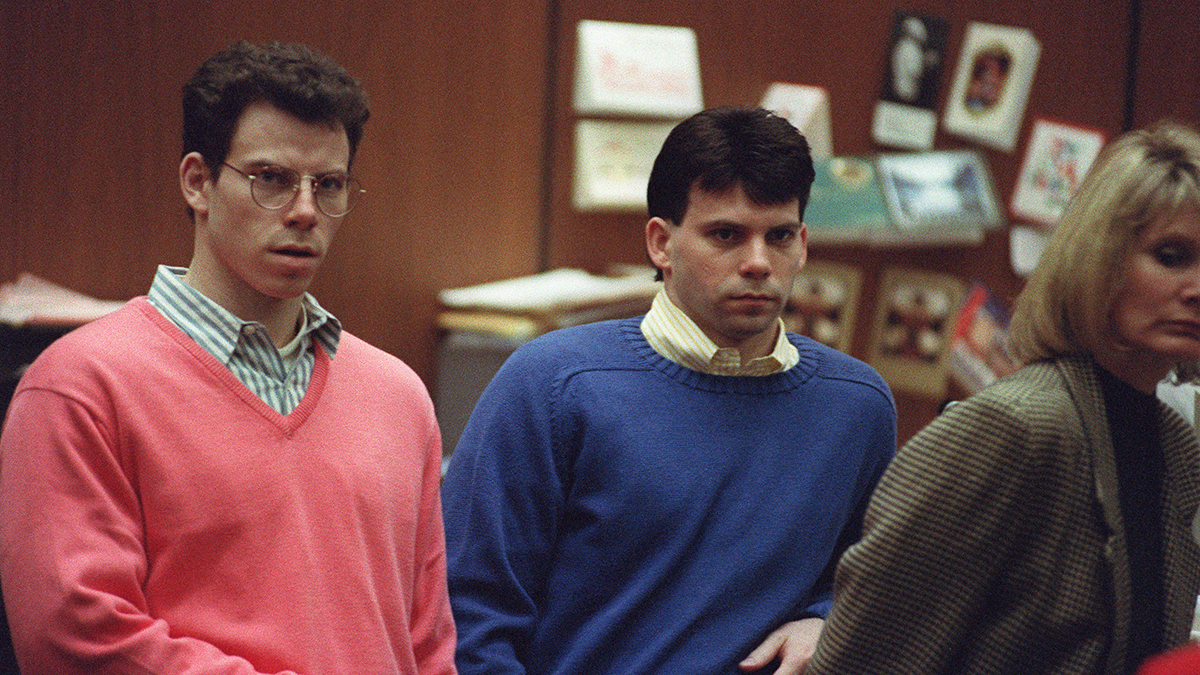Menendez Brothers Parole: Chance at Freedom After 30 Years?
Menendez Brothers Parole: Hope After Resentencing?
A Second Chance? The Menendez Brothers and Parole Eligibility
The chilling tale of the Menendez brothers, Lyle and Erik, has captivated the public imagination for decades. Their conviction for the gruesome 1989 murders of their parents, Jose and Kitty Menendez, became a media circus, fueled by allegations of abuse and the brothers' lavish spending spree in the aftermath. Now, after serving over 30 years behind bars, a resentencing hearing has opened a new chapter: they are eligible for parole. But what does this actually mean, and what are the odds of their release?
The Resentencing Ruling: A Glimmer of Hope
A judge recently resentenced the Menendez brothers to 50 years to life in prison. While this may sound harsh, it's the critical difference that now allows them to appear before the state parole board. It's like finally reaching the shore after a long, arduous swim – the journey isn't over, but you're one step closer to freedom. This resentencing doesn't guarantee parole, but it unlocks the door to the possibility.
The Legal Nuances: From Life Without Parole to Parole Eligibility
Initially, the brothers were sentenced to life without the possibility of parole. The resentencing addressed legal technicalities related to sentencing laws in effect at the time of the original trial. It's a complex legal dance, but the outcome is clear: the parole board now has the power to consider their release. Think of it as the legal system offering a second look, a chance to re-evaluate.
The Parole Board: The Gatekeepers of Freedom
Ultimately, the decision rests with the California state parole board. They will meticulously review the case, weigh the evidence, and consider various factors before rendering a decision. This is where the brothers' fate hangs in the balance. The parole board acts as judge, jury, and executioner (figuratively speaking, of course) when it comes to deciding whether to release them back into society.
What Does the Parole Board Consider?
The parole board doesn't just flip a coin. They delve deep, examining several key aspects:
- The Nature of the Crime: The brutality of the murders will undoubtedly weigh heavily.
- The Brothers' Behavior in Prison: Have they been model inmates? Any disciplinary issues?
- Rehabilitation Efforts: Have they participated in therapy, educational programs, or other rehabilitative activities?
- Remorse: Do they genuinely express remorse for their actions?
- Risk to Public Safety: Would their release pose a threat to the community?
- Victim Impact Statements: The parole board might consider any statements from surviving family members or others affected by the crime.
The Defense's Argument: Rehabilitation and Redemption
Defense attorneys, like Mark Geragos, argued that the Menendez brothers have been rehabilitated during their decades of incarceration. They presented witnesses who testified to the brothers' positive character changes and efforts to atone for their crimes. Is it possible for someone to truly transform after committing such a heinous act? That's the question at the heart of this argument.
Witness Testimony: Voices in Support of the Menendez Brothers
During the resentencing hearings, several witnesses testified in support of the brothers, including their cousin, Anamaria Baralt. Such testimonies aimed to paint a picture of individuals who have grown and changed significantly since the murders. It's like presenting a different version of the same story, highlighting the potential for redemption.
The Prosecution's Perspective: Justice and Public Safety
The prosecution will likely argue against parole, emphasizing the severity of the crime and the potential risk to public safety. They might highlight the premeditation involved in the murders and the brothers' initial attempts to cover up their actions. It's a counter-narrative that focuses on the original crime and the need for continued punishment.
The Weight of the Past: The Gruesome Details of the Murders
The sheer brutality of the murders will undoubtedly be a central point of contention. Jose and Kitty Menendez were shot and killed in their Beverly Hills mansion. The crime scene photos, the evidence presented at trial – these are images that are hard to erase from the public's memory. The past is a heavy burden, and it will likely weigh heavily on the parole board's decision.
Public Opinion: A Divided Nation
The Menendez brothers case remains a topic of intense debate and public scrutiny. Some believe they deserve a second chance, citing the alleged abuse they suffered and their subsequent rehabilitation. Others argue that they should remain in prison for life, believing that their crime was too heinous to warrant parole. Public opinion is a powerful force, even if it doesn't directly influence the parole board's decision.
The Media's Role: Amplifying the Story
The media's fascination with the Menendez brothers case has never waned. From the initial trial to the resentencing hearings, the story has been continuously rehashed and re-analyzed. The media acts as a magnifying glass, amplifying every detail and shaping public perception. It's a constant reminder of the tragedy and the enduring questions it raises.
The Abuse Allegations: A Complicated Narrative
A key element of the Menendez brothers' defense was the claim that they were sexually and emotionally abused by their father. This alleged abuse was presented as a mitigating factor, suggesting that it drove them to commit the murders. However, the validity of these claims has always been disputed. It adds a layer of complexity to the already convoluted narrative.
Did Abuse Justify Murder? The Moral Dilemma
Even if the abuse allegations are true, does that justify murder? This is the fundamental moral dilemma at the heart of the Menendez brothers case. Can childhood trauma ever excuse taking another person's life? It's a question that continues to haunt the public consciousness.
What's Next? The Parole Hearing and the Waiting Game
The next step is for the parole board to schedule a hearing. At this hearing, the brothers will have the opportunity to present their case for parole, and the prosecution will have the opportunity to argue against it. It's a formal process with high stakes. Then, comes the waiting game. The parole board will deliberate and eventually issue a ruling.
The Timeline: When Can We Expect a Decision?
The timeline for the parole board's decision is uncertain. It could take several months or even years for a ruling to be issued. The board must carefully consider all the evidence and arguments before reaching a conclusion. It's a process that requires patience and a willingness to let justice unfold at its own pace.
Life After Parole: What Would It Look Like?
If the Menendez brothers are granted parole, what would their lives look like? They would likely face significant challenges reintegrating into society after spending so many years in prison. They would need to find housing, employment, and build new support networks. It's a daunting task, but not an impossible one. Many parolees successfully rebuild their lives and become productive members of society.
The Challenges of Reintegration: A New Beginning
The world has changed dramatically since 1989. The Menendez brothers would need to adapt to a new technological landscape, a different social climate, and a changed legal system. It would be like stepping into a time machine and trying to make sense of a foreign land. But with the right support and a determination to succeed, they could find their place in this new world.
Conclusion: A Story Far From Over
The Menendez brothers' journey through the justice system has been a long and winding one. Their eligibility for parole marks a significant turning point, but it doesn't guarantee their freedom. The parole board will have to weigh the severity of their crime, their behavior in prison, and the potential risk to public safety before making a decision. Whether they are ultimately granted parole or remain behind bars, their story serves as a reminder of the complexities of justice, the possibility of redemption, and the enduring power of the human spirit. The final chapter of the Menendez brothers saga has yet to be written.
Frequently Asked Questions
- What is the legal basis for the Menendez brothers' parole eligibility?
They became eligible for parole due to a resentencing that changed their sentence from life without parole to 50 years to life, based on sentencing laws at the time of their original trial.
- What factors will the California parole board consider when deciding whether to release the Menendez brothers?
The parole board will consider the nature of the crime, their behavior in prison, rehabilitation efforts, remorse, risk to public safety, and victim impact statements.
- If released on parole, what restrictions might the Menendez brothers face?
They would likely face restrictions such as curfews, drug testing, mandatory therapy, and limitations on their travel and associations. They might also be required to register as offenders, depending on the terms of their parole.
- Where are Lyle and Erik Menendez currently incarcerated?
While specific current locations can change, generally, inmates are assigned to correctional facilities based on security level and program needs. You can consult the California Department of Corrections and Rehabilitation for more updated information.
- Has the Menendez brothers' case influenced any changes to the legal system or parole policies?
While the Menendez brothers case hasn't directly led to specific, named legislation, its notoriety has contributed to ongoing discussions about sentencing guidelines, the role of abuse in criminal defense, and the complexities of parole decisions. These broader conversations can indirectly influence policy adjustments over time.

